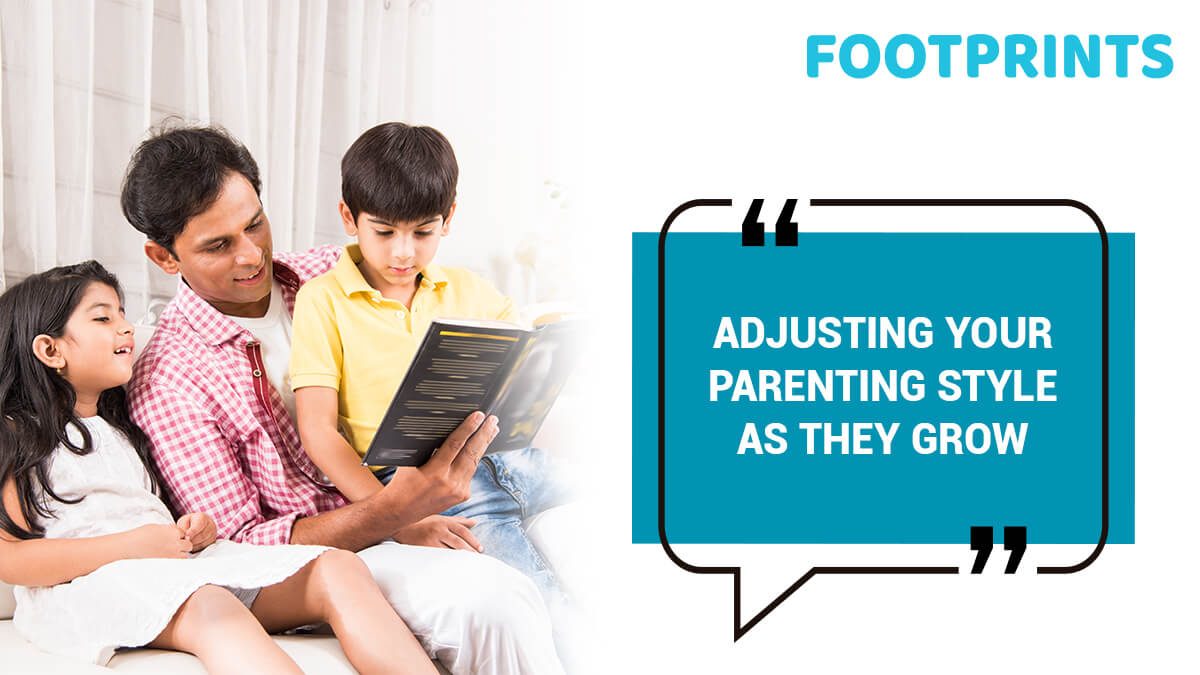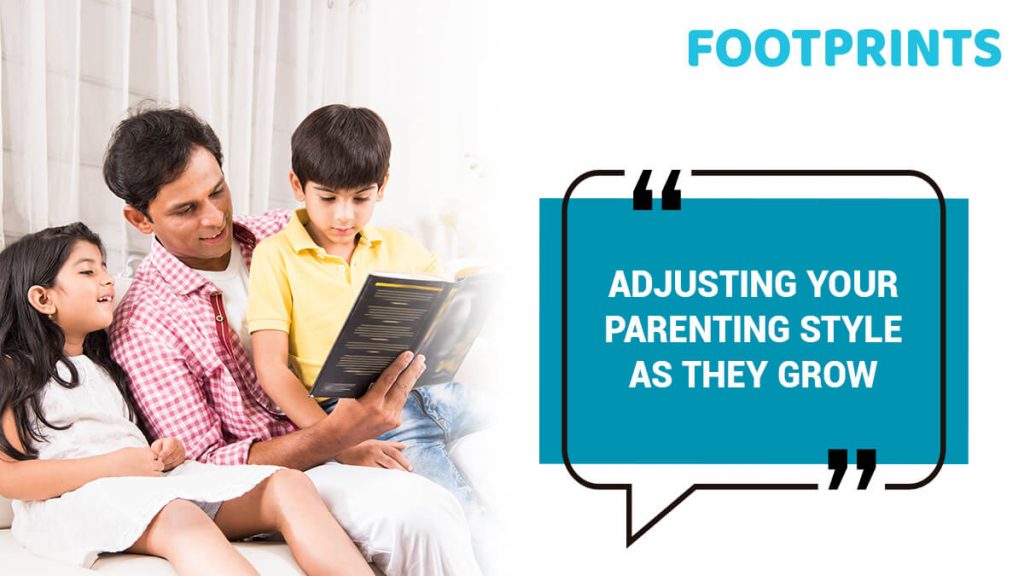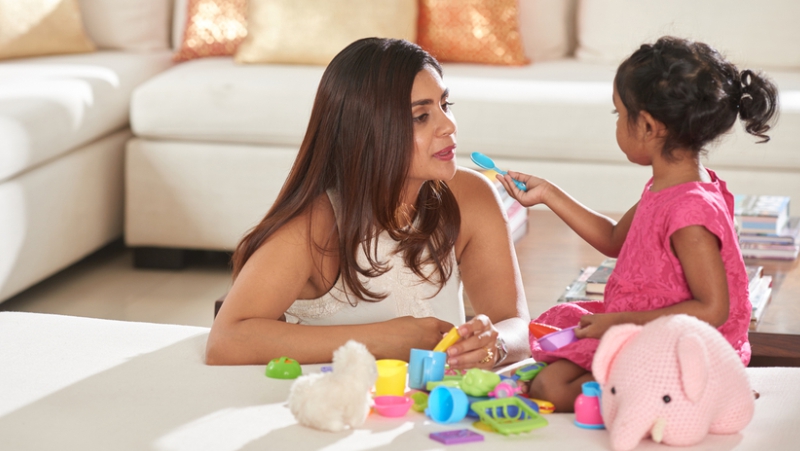

It is the pet peeve of many teenagers that their parents treat them like a toddler. As parents, we often tend to be hurt by such comments since we want nothing but the best for our children. While the teenager’s comment may or may not be realistic, it will be worthwhile to take a moment & consider whether our parenting style is evolving with our children. This refers to a range of things including but not limited to the choice of words, expectations, disciplinary style & more.
Ellen Galinsky, a researcher who specialized in changing family dynamics, is known for his seminal research on the parental journey, in keeping with the child’s developmental phases. He propounds that parenthood needs to change as the child grows & develops. Galinsky’s path-breaking book, The Six Stages of Parenthood throws light on the different tasks & goals of parents through 6 major phases. These phases begin right from conception, to childbirth, preschool and daycare, adolescence & culminate in adulthood.
1. The Image-Making Stage
This is an early stage where adults are forming images about their role as parents and preparing for changes that will come on account of an addition to the family. It goes without saying that oftentimes their relationship with their own parents serves as a model.
2. The Nurturing Stage
This stage relates to the birth of the child, which is also the birth of a parent. The relationship with the baby at this time is one of attachment & the parent takes on a nurturing role, rightfully so as the infant is fully dependent on the parents. Needless to say that parents also need to incorporate their relationship with the child in all their other relationships. Oftentimes it also means reshaping one’s own identity. In terms of parenting, this is one of the most demanding phases as the child is totally dependent on the parent’s caregiving. The parent is also learning to balance the needs of the infant with other responsibilities that they hold. The nurturing phase typically lasts from the child’s birth till about the time the child is two years old.
3. Authoritative Stage
This stage typically lasts from 2 to 5 years of age. This is when parenting revolves around setting rules & boundaries for the child who begins to assert his independence. The setting of rules has much to do with child safety. What is important here is also to state the consequences of breaking rules & importantly to follow through on them. Setting rules & then not allowing the child to face consequences when they break them, is a recipe for disaster. Needless to say that the consequences need to be age-appropriate and well-thought-out.
It is important to note that the authoritative state is not about blind rules but also about explaining why these rules are necessary. Offering the child age-appropriate choices is an important aspect of this phase.
4. Interpretive Stage
This stage typically lasts from 5 years of age until the beginning of adolescence. During this time the child is exposed to a wide variety of external experiences. Parenting during this phase involves helping the child interpret the world. The parent will therefore need to answer questions, offer explanations, teach values, life lessons & more. The child, during this phase, is also learning peer dynamics, and may also be dealing with issues such as peer pressure, bullying & more. This is an important stage as parents need to negotiate their way around to see when they need to step in and when to encourage the child to make independent decisions. It may feel like a tightrope walk but has to be negotiated with skills & dexterity.
5. Interdependent Stage
This is the adolescence period & is often straddled with conflicts. The key aspects during this parenting phase are to allow increased independence for the child and renegotiate their relationship with the adolescent. The parental authority also needs to be remodified. What this means is that there is increased discussion around rules & limits. This stage does not however mean a lack of any boundaries as while the adolescent is offered autonomy, he or she has to operate within boundaries that are mutually discussed and set. The final say in times of conflict, lies with the parent. Little surprise then that this is known as the interdependent & not independent stage.
6. Departure stage
As its name suggests, this stage marks a transition in the parents’ lives. This is a stage where the child reaches independence & the parenting role isn’t as central to the parent’s identity. This can sometimes also be a trying time for parents as they need to rediscover their identity once again, similar to what they had done in the nurturing stage. Done well, in this stage, parents and children form a new relationship & often operate on a more equal footing.
As the above stages show, the parent’s role evolves along with the evolution of the child. It will be worth contemplating which stage of parenting you are currently in. Should you find a major disconnect between your operating parenting style & the recommended one, for the stage, it might be time for some introspection. What often makes the process difficult is also that you may have children in different age ranges for whom your parenting style needs to differ.
This is not to say that these styles need to be followed as watertight compartments. You may need to adjust your parenting style based on the child’s maturity levels. Based on all of these factors you need to find the right balance. Some of the aspects that may offer you a clue on whether you need to adjust your parenting style include:
- Do you land up doing things for your child that the child is perfectly capable of doing on their own? Is this happening because you want to save time, you are a perfectionist, or any other such reason? You may want to consider if you are indeed preparing the child for the road ahead & whether your parenting style could do with some changes.
- Sometimes we may be extremely focused on saving the child from disappointments when as parents our focus needs to be on equipping them with how to handle disappointments. Evaluate to see if this is the case. If so, you may want to let them find their path, even if they make some mistakes in the bargain. Failure, the child must realize, is a stepping stone to success.
- Remember also to tailor your parenting style to the child’s personality. In fact, the child’s behavior can often be a cue for you to introspect. If a child is keeping too many secrets from you, it could be a sign that you need to develop open lines of communication.
- Ensure that both you and your partner have a consistent parenting style. If one is too strict and the other too lenient, what you are doing is sending confusing signals to the child.
- Last but definitely not least if you are facing issues communicating with the child or the child is showing symptoms of defiance, outright revolt, or passive-aggressive behavior, do not hesitate in seeking professional help.
Here is to raising a generation of resilient and well-adjusted children!

Purvesh is a multidimensional leader at Footprints Childcare. As a TED speaker and IIT-Delhi alumnus, his passion for education is fueled by his experiences as a certified life coach and parent. He goes beyond traditional parent engagement activities, creating meaningful connections through insightful parenting workshops and open communication channels. Purvesh’s commitment to empowering parents, teachers, and students is the foundation of everything we do at Footprints. What motivates Purvesh? As a parent himself, the challenges his son faces in the educational system are the driving force for him.




